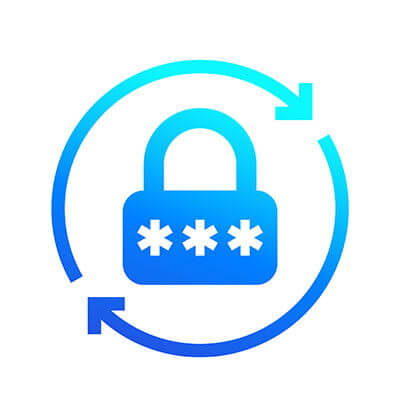Artificial intelligence is no longer confined to use by industry leaders. Small businesses increasingly recognize AI's transformative potential to boost efficiency, enhance customer experiences, and drive innovative strategies. Let’s explore three of the most popular ways small businesses use AI to improve their operations.
Computerware Blog
Your business is as valuable as the data it collects, meaning that if you’re not taking full advantage of your data, you’re leaving money on the table. SMBs need all of the strategic advantages they can get, and one way you can gain such an advantage on your competition is through utilizing big data. Let’s explore how big data can transform your operations for the better.
Businesses have done incredible things with the cloud, regardless of their chosen industries, sizes, and scopes. In particular, they have innovated to create opportunities for scaling growth and operations. How can your organization do the same? We want to help you implement a cloud solution that addresses all of your pain points. To do this, you can start by learning more about the differences between the public, private, and hybrid cloud solutions available to you.
A competitive business can adapt to change with new technologies and innovate in their industry. Unfortunately, where innovation and new technologies are concerned, businesses often experience considerable pushback from employees who might not understand how the new solutions support the company’s mission. How do you get these employees on board?
Humans have all kinds of stakes in digital security thanks to today’s online world demanding that we be more online than ever. Whether it’s personal information or financial details, you can bet everyone is at risk to some degree. Today, we want to examine why individuals—even technology professionals—are not immune to data theft.
Today, we encounter situations in business where digital communication is preferred by many people, and as a result, the use of smartphones to conduct business has become more common. With this shift in the way people do business, there are several considerations that the modern worker has to navigate to properly use smartphones to their advantage. Let’s take a look at a few in today’s blog.
If you’re in the know about cybersecurity and, specifically, mobile malware, you might have heard the name XLoader in the past. The malware has gone through considerable versions and variations, allowing it to steal information from users in more than seven countries, but the most recent is incredibly scary.
Protecting personal data has become a critical concern as more and more people use Internet-connected accounts. While this tech has undoubtedly enriched our lives, it has also paved the way for unprecedented invasions of privacy, particularly by enormous technology companies that claim to be doing it for their own good. Today, we will explore how these giants compromise data privacy, raising questions about the balance between innovation and safeguarding our most sensitive information.
Information technology, or IT, is an indispensable component for most contemporary businesses and serves as the backbone of their operations. To ensure a smooth operational infrastructure, it is crucial that businesses manage their IT in the most effective manner possible.
One such way businesses can do this is through working with a managed service provider, or MSP. These types of arrangements can provide businesses with clarity and ease of mind as it pertains to IT and operations.
Have you ever tried to introduce new technology to your team, only to have your efforts at improving your business’ efficiency bounce off of your apathetic and frustrated employees who just don’t see the benefits? You’re not alone; it’s difficult to teach old dogs new tricks, as they say. Granted, it’s not impossible, and your team can (and should) be able to get on board with any new implementations, provided you do some initial legwork.
Your IT team plays a crucially important part in your business machinations. However, many small and even medium-sized businesses may not have the in-house resources to effectively cover their needs. If this could easily describe your business, you might want to consider outsourcing some of your technology management needs to a managed service provider.
Network security is an incredibly nuanced topic with a lot of specifics that must be addressed. Still, today, we want to give you some actionable items that you can use to take an active role in improving network security for your business. Let’s dig into some of the essential dos and don’ts of network security for small businesses.
A single oversight can potentially nullify the effectiveness of your cybersecurity measures. For instance, even if you've implemented security measures like multifactor authentication, a phishing scam or certain malware variants could grant unauthorized access to your email, compromising all the data stored in your inbox.
Your business runs on its data, and as such, you need a sound strategy for sharing files and other important information to ensure collaboration goes off without a hitch. You must also do all of this while protecting your sensitive data. What are some best practices that SMBs can utilize for file sharing? Let’s go over them.
One of the biggest trends in mobile technology is the incorporation of foldable displays allowing device manufacturers to create interesting products. While this innovation is undeniably cool, do these foldable devices actually provide the benefits they are marketed for; namely enhancing productivity?
Data security is one of those things that you have to stay out in front of. Hackers and scammers are changing tactics and getting a little more sophisticated as time goes on and it creates a pretty difficult situation for most IT administrators. Utilizing multi-factor authentication (MFA), two-factor authentication, or whatever it is called by the application you are using has become a great way to add an extra layer of security to organizational data protection efforts. Today, we will discuss the benefits of this strategy and why it isn’t a be-all, end-all to your overall security.
Data security is an integral part of not just business operations but everyday life at this point. Most people agree that specific measures to protect data security, like verifying emails and updating antivirus software, are reasonable. However, one aspect that many people fail to consider is oversharing information on social media.




















